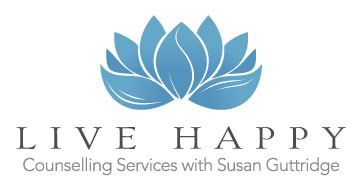|
Anxious. Fearful. Hypervigilant. Panicked. Emotionally flooded. Destabilized. All these words can describe how we feel after a experiencing something traumatic. Imagine feeling that way, and then trying to work through the experience in a counselling session - it might just feel too daunting a task. Which, is why a first action item in counselling is to foster emotion regulation. Read on to learn more about how EMDR (Eye Movement Desensitization and Reprocessing) helps decrease the experience of those emotions with regulation strategies. Often referred to as resourcing, this is a vital component of therapy and essential when it comes to embarking on the journey of healing from a traumatic experiece. Why Emotion Regulation MattersTrauma can leave deep emotional scars that affect our day-to-day lives and overall well-being. This emotional wounding can be overwhelming, often leading to intense feelings of anxiety, anger, sadness, or even numbness. Emotion regulation refers to the capacity to manage and modulate these emotions effectively. Here are a few reasons why emotion regulation is a cornerstone of trauma work, and an important first step when engaging in trauma processing:
Emotion regulation empowers individuals to face their trauma with resilience and self-compassion, ensuring that the therapeutic process is a safe and transformative one Emotion Regulation TechniquesYour therapist will work with you to cultivate emotion regulation strategies that fit for you. There are a bunch outlined throughout this blog, such as breath work, grounding, and visualization. Here are some additional techniques that can be beneficial:
Grounding Exercises: Grounding techniques, such as deep breathing, mindfulness, or sensory grounding can help in anchoring to the present moment and reduce emotional overwhelm Self-compassion: Learning to connect with self-compassion and to engage in self-care can be transformative. In fact, cultivating kindness and patience with oneself is a powerful emotion regulation tool. Emotion Tracking: Keeping a journal to track and understand our emotions can be enlightening. It helps us become more aware of our emotional patterns and triggers. You don't need a formal journal, even a note on your phone will suffice. I suggest making a note of how you are feeling, the thoughts that go with it and how you are feeling in your body, and one sentence about what is going on. Alternatively, you can use an app for that, such as Insight Timer, and MindShift. The goal with tracking is to create a rhythm with noticing activation and using an emotion regulation technique to anchor back to the present and to a more settled emotional state. Seeking Support: We are social beings, and we heal in connection with others, not in isolation. Seeking connection with those trusted individuals in your life, working with a counsellor, or accessing a support group can provide you with a valuable safety network. When we work to cultivate emotion regulation, it becomes a strong foundation from which we can process traumatic experiences. It is where resilience and compassion grow from, and it is what ensures that the therapeutic process is a safe and transformative one. After all, trauma-informed therapy is all about safety, collaboration, and empowerment - understanding the impacts of trauma and walking alongside you, providing therapeutic support and building on your strengths as you embark on the courageous journey towards healing.
0 Comments
Your comment will be posted after it is approved.
Leave a Reply. |
AuthorSusan Guttridge is a trauma-informed Master level Counsellor with the clinical designation of Canadian Certified Counsellor (CCPA). She has 20+ years experience providing individual and group therapy. Archives
January 2024
Categories
All
|


 RSS Feed
RSS Feed